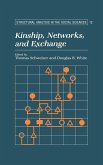This book shows how the universal quantification of science resulted from the routinization of commercial practices that were familiar in scientist's daily lives. Following the work of Franz Borkenau and Jacob Klein in the 1930s, the book describes the rise of the mechanistic world-view as a reification of relations of exchange in the sixteenth and seventeenth centuries. Critical of more orthodox, positivist Marxist accounts of the rise of science, it argues that commercial reckoners, in keeping with the social relations in which their activity took place, delivered a new mathematical object, "general magnitude," to the new mechanics. The book is an historical extension of the sociology of scientific knowledge and develops and refines themes found in the work of Alfred Sohn-Rethel and Gideon Freudenthal.
Hinweis: Dieser Artikel kann nur an eine deutsche Lieferadresse ausgeliefert werden.
Hinweis: Dieser Artikel kann nur an eine deutsche Lieferadresse ausgeliefert werden.








